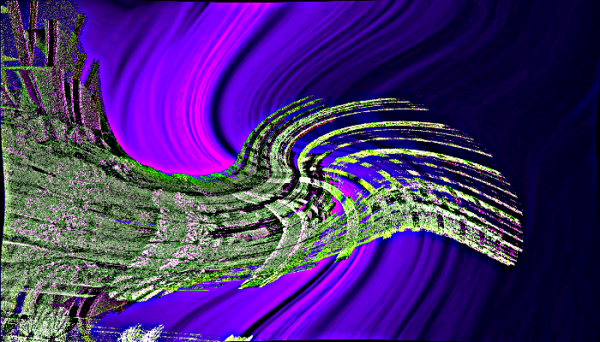BY LETTER
Quantum Impeller
 Image from Steve Bowers |
A nanomachine equipped with quantum impeller technology is able to attract, repel, and manipulate atoms and molecules without the use of mobile effectors such as are used in modosophont nanotech. In addition, an impeller equipped nanobot may propel itself by using quantum effects to react against or pull itself toward surrounding matter or other nearby nanomachines.
Quantum impellers seem to have a range of only a few hundred nanometers and are unable to effect matter over any greater distance, or with greater strength, than their material counterparts in devices created by lower-level minds. However, they are considerably faster and more energy efficient than material manipulators and appear to form much of the foundation for transapient nanotechnology’s demonstrated superiority over modosophont systems.
Related Articles
- Nanite
- Nanodesign - Text by M. Alan Kazlev
The design of materials and goods using nanotechnology. - Nanoengineer - Text by M. Alan Kazlev
One who designs or programs assemblers or nano-devices, or designs functional structures on the atomic scale. Nanoengineering is based on applications from quantum mechanics, applied thermodynamics, chemistry, MEMS, mesotech, robotics, and swarm theory. Most nanoengineers are cyborgs or vecs who incorporate extensive pragmatic nanoborg augmentations, and generally work in a specific field of application, or as dedicated sophonts for a higher toposophic. Contrast with nanohacker. - Nanomachine
- Quantum - Text by M. Alan Kazlev
Term coined by Old Earth late Industrial Age scientist Max Planck to describe an individual particle of light. At the subatomic level, matter and energy occupies discrete packages, or quanta. These govern all particle interactions and physical qualities, including electric charge, spin, and so on. - Quantum Levitation
- Quantum nanotechnology
- Transfer Plane
Appears in Topics
Development Notes
Text by Todd Drashner
Initially published on 31 January 2011.
Initially published on 31 January 2011.






